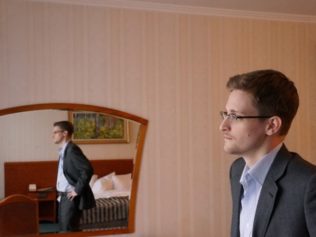More than a month into the court martial of Pfc. Bradley Manning, his defense team began presenting its case to the military judge, attempting to portray Manning as a skilled computer analyst who was nevertheless naive and weak when it came to the social aspects of his military work.
Manning, who is accused of leaking more than 700,000 classified files and diplomatic cables to WikiLeaks while serving in Iraq in 2009 and 2010, could face life in prison if found guilty by the trial judge, Colonel Denise Lind.
Manning, 25, of Crescent, Okla., is charged with 21 offenses including aiding the enemy, but to prove that charge, prosecutors must demonstrate that Manning gave intelligence to WikiLeaks knowing it would be published online and seen by an enemy of the United States.
When the prosecution rested its case last week, it had presented evidence from 80 witnesses to prove that Manning let military secrets fall into the hands of al-Qaeda and its former leader Osama bin Laden.
His defense team, which is expected to call as many as 46 witnesses, began its case by showing the entire 39-minute video of a 2007 Apache helicopter gunship attack in Baghdad that killed a dozen people, including two Reuters reporters. It was one of the most damaging things Manning is accused of giving to WikiLeaks.
The defense’s first witness, Chief Warrant Officer 2 Joshua Ehresman, described Manning as his “go-to guy” in Iraq, saying his work product was “the best” and that he “would come up with exactly what you were looking for” when given a task.
While he continued that Manning excelled in “data mining,” Ehresman acknowledged that his ability to analyze the information was poor. He said Manning was weak in his assessments and frequently jumped to conclusions before checking all his sources or working with his fellow soldiers. He added that Manning was weak in the “social” aspect of his intelligence work, though his computer literacy was “very high.”
Led by attorney David Coombs, the defense is trying to portray Manning as a naive young man who released information to the public because he was so concerned about the injustice and wrong in the world around him.
The court also heard testimony from Lauren McNamara, a transgender woman whom Manning befriended online shortly before his deployment to Iraq in November 2009. McNamara read from a web chat that she engaged in with Manning between February and August 2009, during which he shared with her his views on politics, global affairs and his private life. At the time, McNamara was still a man with the name of Zachary Antolak.
“We were just a couple of people talking about our lives, and he shared his various experiences and interests,” McNamara said. She said Manning was concerned about saving the lives of families in other countries, of non-combatants and soldiers alike.
Reading from the chats, she quoted Manning saying, “I’m more concerned about making sure that everyone, soldiers, marines, contractor, even the local nationals, get home to their families.”


